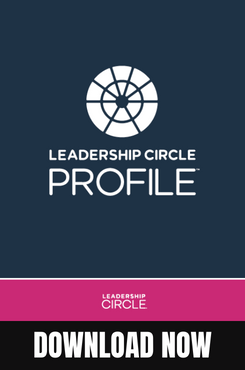As an executive coach, I've been helping leaders to harness the power of feedback for two decades.
Feedback has a bad wrap, it instantly conjures up negative emotions, and when I ask leaders " How do you feel about feedback" - mostly I hear - well, I don't love it.
Because of this, there's a lot of awkwardness in this conversation and it doesn't happen enough. I'm going to break down my best advice around feedback and provide you with some tools to navigate this conversation effectively.
- Feedback should be a conversation. Do you think of it that way? I find many leaders think of it as an event, a performance evaluation, instead of a developmental conversation designed to help people grow, both personally, and professionally. When we approach it as a conversation it helps us to relieve the pressure, to think of this as one of the many conversations I need to have this week.
- Do you ask for feedback? What's the approach you take when you do? As I always say, no one cares about your career as much as you do. If you want to know how you are doing, go and ask for feedback. Be strategic, think about who do I want to get feedback from? What am I hoping to hear? Who do I least want to receive feedback from, what am I worried I might hear? If you're asking and hearing “Everything's great. You should just keep doing what you're doing,” that's a sign you need to change your approach.
- If you are a woman getting feedback. Women tend to get vague feedback, overly indexed on the positive. Feedback can also be subjective instead of objective. It's important that you ask questions to try and get specifics, and clarify what is there to learn from the feedback. Underneath all of this is a gender stereotype that women can't handle direct messages.
If you want to grow, you need to go and ask for direct feedback.
For each of my executive coaching clients, we work on a robust feedback strategy as part of our engagement.
Here are some questions you can use to ask for feedback.
- Which aspect of my role is most important to the department’s strategy?
- Where could I redirect my focus?
- When do you seek my expertise? How can I be even more helpful?
- How do you think we complement each other as partners?
- What value do I personally bring to my internal and external customers?
- When do you see me at my best?
If you get vague feedback, I'm going to encourage you to ask two follow-up questions.
- “Can you be more concrete? I'm not sure that I understand what you're trying to tell me."
- “Could you provide me with some evidence about how this is impacting my work or my team?"
They may not have a response prepared. You might catch them off guard, be prepared for that. If they don't have an example, and they can't think of one, ask them to let you know next time they see it in action.
4. Learn to receive feedback. Receiving feedback is a skill. People who receive feedback well get more of it. Process what you are hearing, remain as neutral as you can. Paraphrase back what you think you are hearing. Ask for clarifications and examples. When you feel ready tell them what you've understood and what you are prepared to do next. You can also ask for help and support if you feel you need it.
Building the career you want requires taking risks- but I can help you mitigate them.
And the difference that makes all the difference is feedback!
Would you like to get feedback to help you grow?

Download a copy of the 360 Assessment Tool I use with all of my executive coaching clients to help them increase their self-awareness, manage blind spots, and chart a course for professional development.
Your Coach,
Harriette



